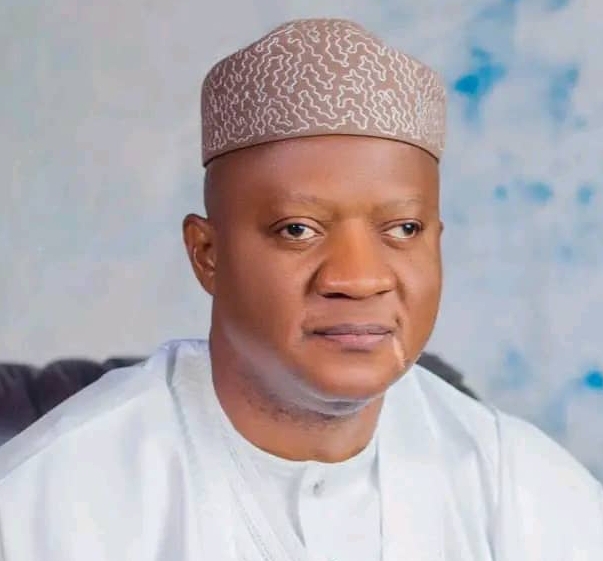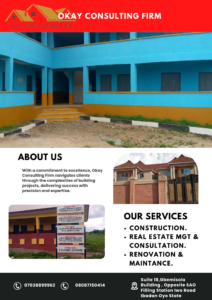Barr Akeem Agbaje Charts Vision for Sustainable, People-Centric Waste Management Reform in Oyo State

Barr. Akeem Agbaje, legal luminary, business executive, philanthropist, and committed humanist, in a thoughtful chart with a group of newsmen in Lagos over the weekend offered a reflective analysis of the state of environmental sanitation in Oyo State, and stressed on the need for a novel, people-centered approach to waste management across the state.

Barr. Agbaje, a two-time gubernatorial aspirant in Oyo State on the platform of All Progressives Congress Party (APC), described the current realities of waste generation and disposal as a growing challenge that demands strategic redirection and collective responsibility.


According to him, a modern urban centre like Ibadan, which produces over 1,500 tons of waste daily, cannot afford to lag behind in building a functional sanitation system that meets both the demands of the present and the expectations of the future.
“The figures speak for themselves. With a state population surpassing seven million and estimated waste generation now above 1.2 million metric tons annually, it is time to embrace a waste management model that is efficient, transparent, and capable of long-term environmental and economic transformation.”

Barr. Agbaje noted that while efforts have been made over the years through the establishment of the Oyo State Waste Management Authority (OYOWMA) and the involvement of licensed private operators, critical gaps still remain in infrastructure, coordination, and community engagement. He observed that existing dumpsites such as those at Ajakanga, Awotan, and Aba-Eku are under severe pressure, and there is a pressing need to re-assess their operation and environmental impact.
“What we see in many urban and rural communities, from the congested heart of Ibadan to the quieter towns in Ibarapa, Oke-Ogun, and Ogbomoso, is a reflection of a system that requires not just more funding, but more innovation and inclusiveness.”
He expressed concern over reports of open defecation, dumping and burning of waste in several localities, often leading to blocked drainages and environmental degradation. These practices, he said, not only pollute the environment but also expose residents to preventable health risks such as malaria, cholera, and other vector-borne diseases.
In proposing a pathway forward, the Ibadan-born politician called for a comprehensive waste-to-resource strategy that turns challenges into opportunities. He identified investment in recycling, introduction of smart tracking systems, and the expansion of public-private partnerships as key components of a more effective system.
“Across the state, young people are already informally involved in waste recovery and sorting. With proper support and formal recognition, these efforts can be scaled into sustainable livelihoods, bringing dignity to labour while improving our environment.”
Barr. Agbaje further advocated for the establishment of community-based waste collection hubs, particularly in under-serviced areas.
He emphasised the importance of participatory governance in environmental affairs, noting that progress in waste management must be rooted in the active cooperation between citizens, local government, and relevant agencies.
While expressing confidence in the potential of Oyo State to emerge as a model for environmental reform in Nigeria, he urged a more deliberate prioritisation of sanitation in the state’s developmental agenda.
“Waste management is not just about cleanliness; it is about protecting lives, creating jobs, boosting tourism, and preparing our cities for tomorrow. We owe it to the next generation to get it right today.”
As residents continue to navigate the daily implications of waste disposal, Barr. Agbaje’s vision offers a hopeful direction, one where leadership meets responsibility, and where policies are shaped not by politics, but by the needs and aspirations of the people.

